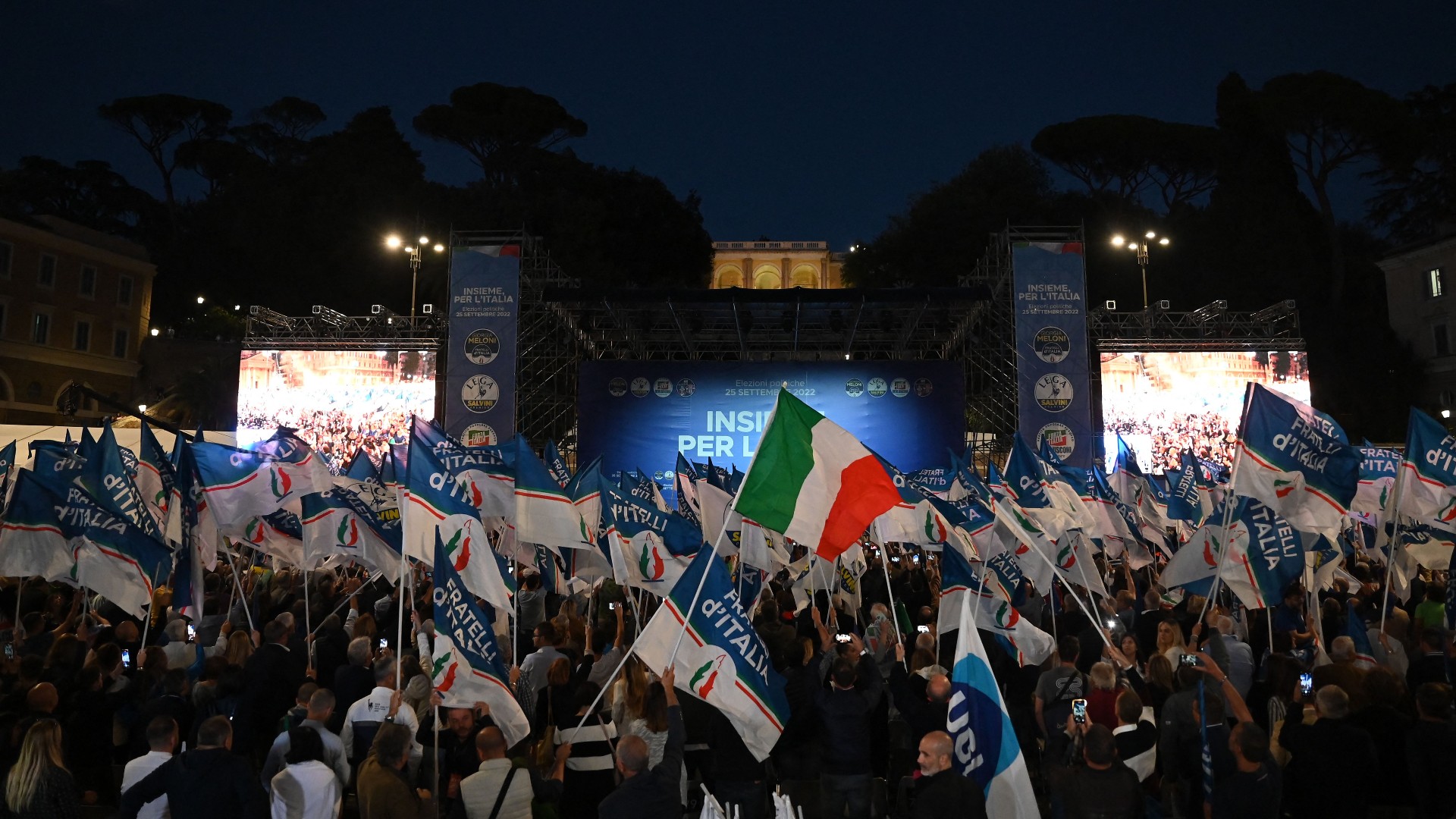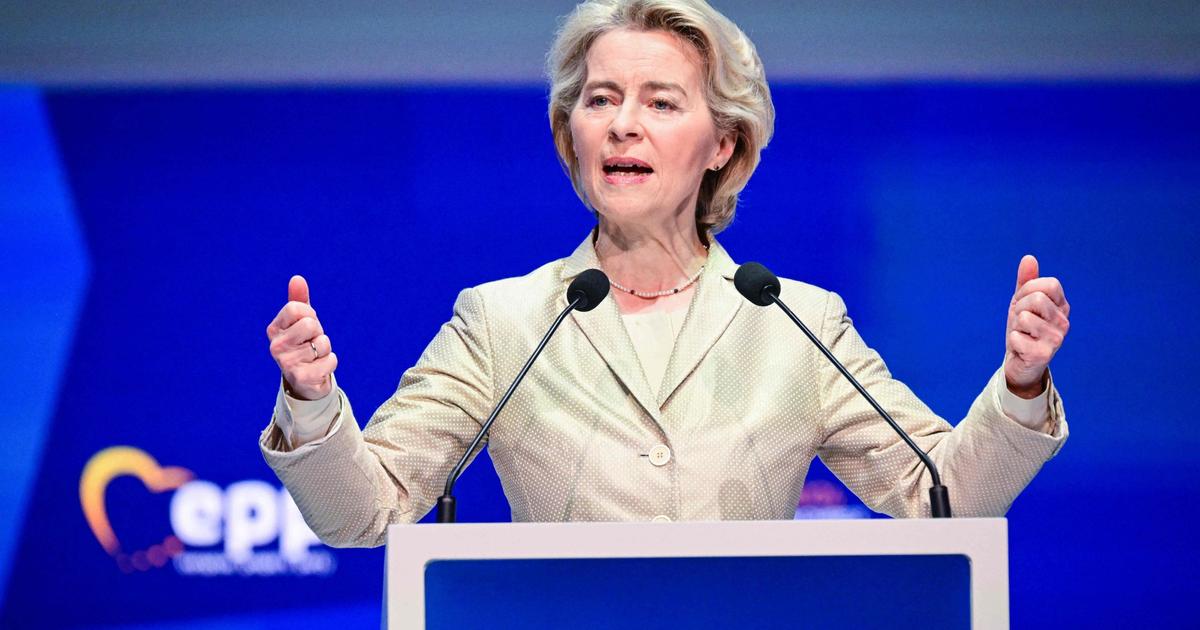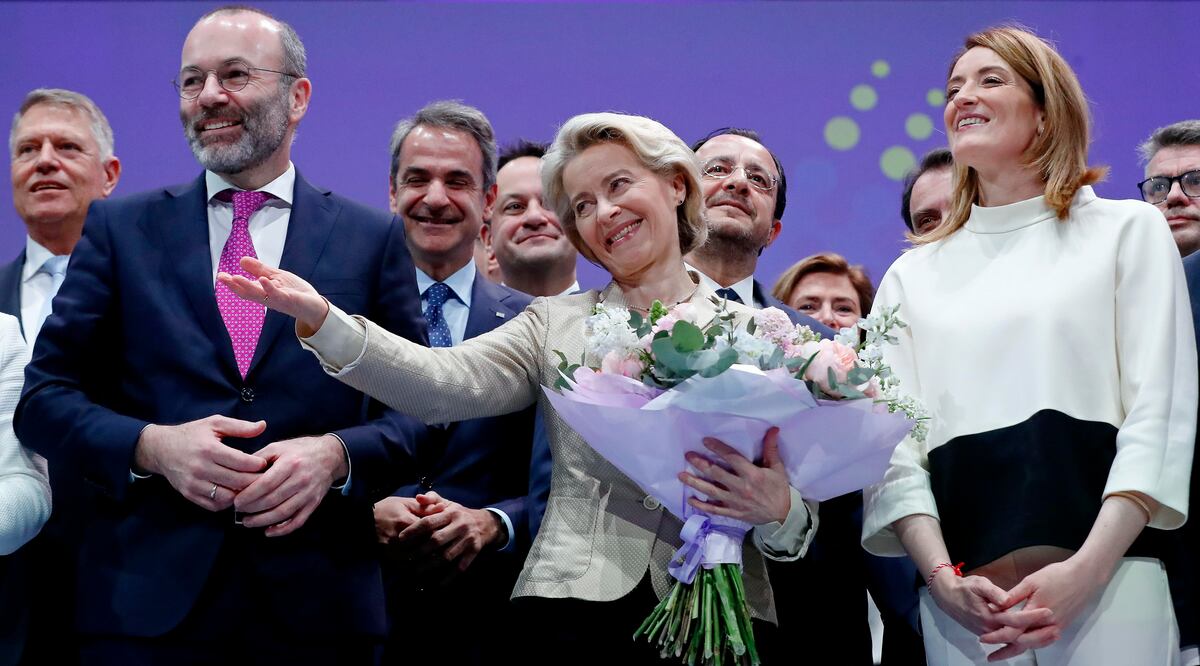Voter turnout in Italy was the lowest since World War II 3:05
(CNN Spanish) --
The victory of a far-right coalition in the recent elections in Italy marks the arrival of extremism in the government of one of the most important countries in Europe.
With these results, Giorgia Meloni, the Eurosceptic leader of the Brothers of Italy party - which vindicates the dictator Benito Mussolini -, would become prime minister.
Giorgia Meloni wins the elections in Italy and will be the most far-right prime minister in the country since Mussolini
With the slogan "God, country and family", Meloni, 45, led a campaign based on Euroscepticism - that is, rejection of the European Union - and anti-immigration policies, and has also proposed reducing the rights of the community LGBTQ and access to abortion.
His rise marks the latest advance of the far-right in Europe — whose Eurosceptic, anti-immigration and socially conservative agenda seems to transcend borders — which has been spreading across the continent in recent years and especially since the crisis of the 2015 refugees.
Militants attend a joint rally of Italian right-wing Brothers of Italy (FdI), La Liga (Lega) and Forza Italia parties in Rome on September 22, 2022, (Credit: ANDREAS SOLARO/AFP via Getty Images)
This is a glimpse of that growth.
advertising
Italy
Brothers of Italy, led by Meloni, obtained at the moment 26% of the votes in the general elections this Sunday, according to the preliminary count.
Its main allies, Matteo Salvini's La Liga and former Prime Minister Silvio Berlusconi's Forza Italia, achieved 9% and 8%, respectively.
With these numbers, the far-right coalition was on track to obtain 44% of the vote and thus manage to designate the future prime minister, a huge success especially for Meloni, whose party obtained just 4.5% of the vote in the previous elections of 2018.
It is an impressive development for this young politician.
Meloni was one of the founders in 2012 of Brothers of Italy, an offshoot of the Italian Social Movement, a fascist party founded in 1946 by followers of Mussolini.
Day X: when the extreme right aspires to control society 0:45
Meanwhile, his coalition partners Salvini and Berlusconi have dominated right-wing politics in the country in recent years, with Meloni even serving in Berlusconi's government.
Sweden
At the beginning of September, the Swedish Democrats surprised by becoming the second minority in the country after their good results in the general elections.
With neo-Nazi roots, the Sweden Democrats will play an important role in Swedish politics from now on.
His popularity, like that of so many other far-right forces in Europe, skyrocketed after the 2015 migrant crisis, when several European countries — including Sweden — decided to open their doors to refugees fleeing the wars in Syria and Yemen. and hunger, generating tensions.
Sweden Democrats had achieved just 5.7% of the vote in the 2010 elections, but grew to 12.9% in 2014 and 17.2% in 2018, after the crisis.
And in September it climbed to 20.5%, reaching second place behind the Social Democrats.
Hungary
In power since 2010, Hungary's prime minister, Viktor Orban, has built a power base precisely thanks to his anti-immigration policies, which have garnered him the support of far-right voters, and crippled the opposition.
This was Hungary's anti-immigration rhetoric in the EU 1:38
And, as the migrant crisis normalized, Orban and his Fidesz party have turned their attention to members of the LGBT community: in April's general election, his government also held a controversial referendum to ban sexual orientation education in schools, a measure considered by some sectors as discriminatory.
Fidesz won again in those elections: it achieved 53% and supported Orban, although the referendum did not reach the level of participation required to be valid.
Relations between Budapest and Brussels, in this context, have been very tense.
In February, the Court of Justice of the European Union opened the way to restrict the sending of funds to Hungary for failing to comply with European standards, especially by imposing political controls on the judicial system and the media and restricting basic rights.
And Orban's good relationship with Vladimir Putin, the Russian president now locked in his invasion of Ukraine, has further strained those relations.
Poland
Poland was also reached by the decision of the Court of Justice of the European Union, and could suffer restrictions on the transfer of funds from the EU for public health, digitization and environmental care programs.
"Hungary and Poland have rapidly regressed in terms of press freedom, the independence of judges and the right to protest," Amnesty International said.
Former communist republics that suffered after the collapse of the USSR in 1991, both countries have benefited from economic aid since joining the European Union in 2004.
In the case of Poland, the right-wing Law and Justice party has governed since 2015 and its current prime minister is Mateusz Morawiecki.
France
Behind the victories of Emmanuel Macron in the 2017 and 2022 presidential elections in France, appears the shadow of the far-right Marine Le Pen, of the National Front, who reached the second round both times.
Le Pen won 34% of the vote in 2017 (compared to Macron's 66%), and climbed to 41% in 2022 (compared to Macron's 59%), consolidating her position as an alternative and narrowing the gap.
Currently Le Pen, 53, is a member of the French National Assembly for Calais, the coastal city facing the United Kingdom where immigrants heading to Britain are concentrated.
Macron's leadership in France will be tested in legislative elections 4:57
Le Pen opposes migration -- and especially the influence of Islam in France --, is Eurosceptic and defends economic nationalism, saying she represents the French working classes who have suffered as a result of globalization and technological progress.
She has also been a vocal admirer of Putin, and is strongly opposed to NATO, of which France is one of its pillars.
The situation in other parts of Europe
The far-right parties have been consolidated in almost the entire continent, although in all the countries they are so close to positions of power.
In Germany, the Alternative for Germany (AfD) party grew rapidly with its agenda against migrants and the European Union until it became the third force in 2017.
Although since then its influence has been reduced: currently the fifth force in the Bundestag, the German parliament, with 79 seats.
While in Spain the Vox party, also with an agenda linked to the extreme right, is currently the third force in the Congress of Deputies, with 52 seats.
And in Austria, the Austrian Freedom Party (FPÖ) is the fourth largest force, with 30 seats.
His popularity, however, is on the decline: in the last elections he obtained 17.3% of the votes, while in 2017 he had achieved 26% and a space in the government coalition, which was later dissolved in 2019.
With reporting by Kara Fox, Antonia Mortensen, Barbie Latza Nadeau, Nicola Ruotolo, Sharon Braithwaite, and Valentina DiDonato.
ItalySwedenFar Right














